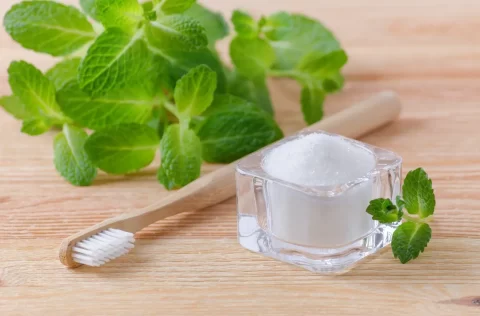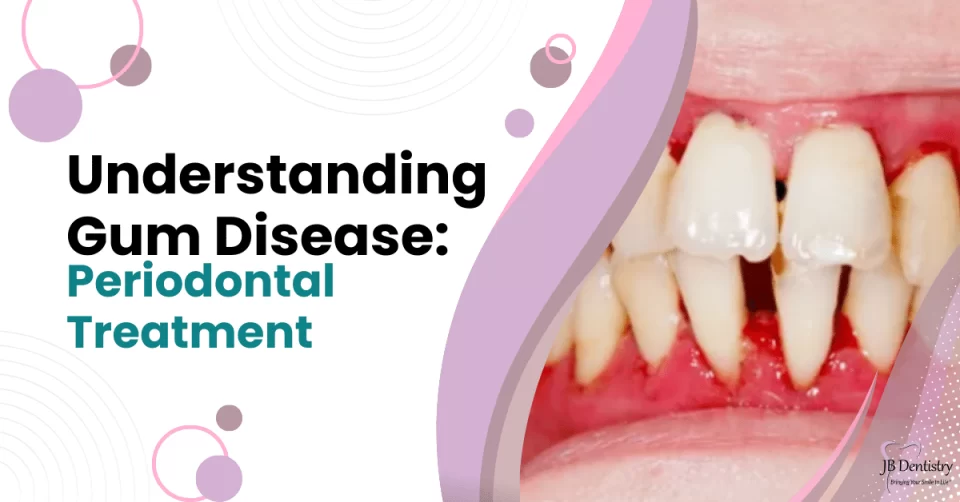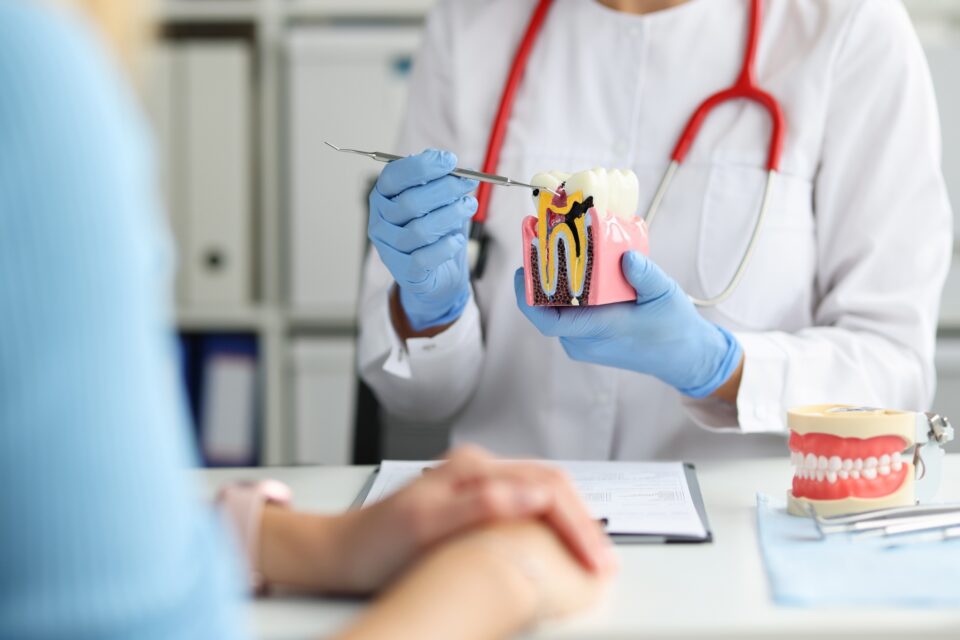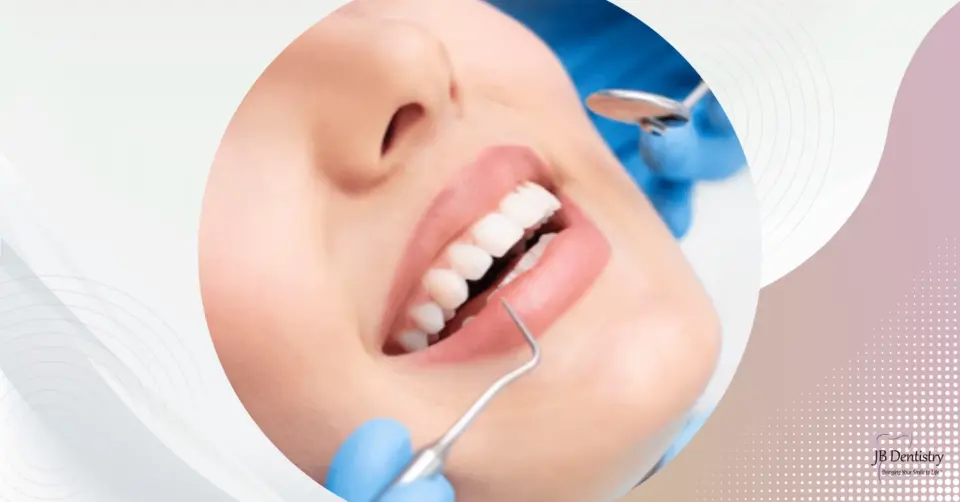Holistic Dentistry Pompano Beach FL | JB Dentistry
Jaline Boccuzzi, DMD, AAACD Your Expert Holistic Dentist in Pompano Beach FL
Experience Better Health Through Holistic Dentistry in Pompano Beach FL

your top holistic dentist
Holistic dentistry, or biological or integrative dentistry, is an alternative approach to dental care that considers an individual's overall well-being, considering the connections between oral health and the rest of the body. It emphasizes using natural and biocompatible materials, minimally invasive procedures, and focusing on the mind-body connection. One of the main principles of holistic dentistry is to promote the body's natural healing abilities and avoid or minimize the use of potentially harmful substances. Holistic dentists prioritize the use of non-toxic materials for dental treatments and procedures. It may opt for alternatives to traditional amalgam (mercury) fillings, such as composite resin or ceramic materials. We also consider the potential impact of dental materials on the immune system and overall health.

what is holistic dentistry?
Holistic dentistry is a method of providing dental treatment that considers the full patient, paying special attention to the links between oral and total health of the body. Holistic dentists prioritize natural or biocompatible materials for treatments and procedures, avoiding potentially harmful substances such as mercury fillings. An emphasis is put on minimally invasive techniques and promoting the body’s natural healing abilities.
This type of dentistry also considers the potential impact of dental materials on the immune system and the psychological aspects of oral health. Holistic dentists may use relaxation techniques such as guided meditation and aromatherapy to help reduce anxiety during treatments. They may also emphasize nutrition education and lifestyle counseling to help patients make healthy choices.
The holistic approach to dental care is designed to provide comprehensive and individualized treatments that optimize the entire body’s health rather than just treating symptoms of a single condition. This can lead to long-term oral health benefits and improved overall wellness. Holistic dentistry also emphasizes preventative care, early detection, and treatment of potential issues before they become more serious. Additionally, holistic dentists are often associated with natural alternatives to traditional treatments, such as homeopathic remedies, chiropractic care, and acupuncture. Working in concert with a team of healthcare professionals, holistic dentists strive to improve overall well-being through personalized dental care plans.
Holistic dentistry is a growing field, and more and more dentists are becoming certified in this approach. It’s important to research any prospective holistic dentist before scheduling an appointment, as many may have varying levels of experience with the holistic approach to dental care. Patients should also check their insurance policies to see what types of treatments may be covered. With the right practitioner and a commitment to prevention, those who choose holistic dentistry can enjoy lifelong oral health benefits.
mercury free fillings
Mercury-free fillings, also known as amalgam-free or silver-free fillings, refer to dental restorations that do not contain amalgam. Mercury, silver, and other metals are combined to create amalgam fillings, tin, and copper, commonly used for dental fillings.
Mercury-free fillings are typically made of alternative materials like composite resin, porcelain, or glass ionomer. These materials are considered safer and more aesthetically pleasing compared to amalgam fillings.
The concern with amalgam fillings lies in the potential release of small amounts of mercury vapor over time. While scientific research and dental organizations support the safety of amalgam fillings, some individuals may choose to avoid them due to personal preferences or concerns about potential health risks.
If you prefer mercury-free fillings, it’s important to communicate this with your dentist. We can discuss alternative options and recommend suitable materials for your dental needs. Composite resin fillings are a popular choice because they can be made to seem just like your real teeth and provide a more sensitive restoration.
It’s worth noting that the removal of existing amalgam fillings requires careful procedures to minimize mercury exposure during the process. For a replacement for mercury-based amalgam fillings with mercury-free alternatives, consult a qualified dentist experienced in safely removing and replacing dental restorations.
gluten free fillings
“Gluten-free fillings” is not a recognized term or concept in dentistry. Gluten is a protein found in certain grains like wheat, barley, and rye, primarily associated with food products and their potential effects on individuals with gluten-related disorders, such as celiac disease.
When it comes to dental fillings, they typically do not contain gluten as an ingredient. Dental fillings comprise composite resin, porcelain, or amalgam (including a metal mixture). These materials do not typically contain gluten and are considered gluten-free.
If you have gluten-related concerns or have been diagnosed with a gluten-related disorder, it is always a good idea to communicate this with your dentist. These can ensure that any materials or products used during your dental treatment are gluten-free or can provide you with detailed information about the specific ingredients in the materials being used.
It’s worth noting that while dental materials are generally gluten-free, other components of dental products, such as adhesives or topical anesthetics, may contain ingredients derived from grains. If you have specific dietary restrictions or concerns, discussing them with your dentist to make appropriate accommodations is important.
PBA-free fillings
“PBA-Free fillings” is not a recognized term in dentistry. It appears to be a typographical error, as the correct time is “BPA-Free fillings.”
BPA, or bisphenol A, is a chemical compound that produces certain plastics and resins, including some dental materials. However, many dental manufacturers have shifted towards producing BPA-Free dental materials due to concerns about its potential health effects.
BPA has been associated with potential hormone-disrupting effects, although scientific research on its safety is still evolving. As a result, many individuals and dental professionals prefer to use BPA-Free materials as a precautionary measure.
If you have concerns about BPA or are interested in BPA-Free dental materials, discussing this with your dentist is recommended. They can provide information on the dental materials used in their practice and whether they offer BPA-Free options. It’s important to note that BPA-Free alternatives are available for various dental treatments, including composite fillings, dental sealants, and orthodontic appliances.
Communicating your preferences and concerns with your dentist, they can work with you to select dental materials that align with your values and address any specific health considerations.
biomimetic dentistry
Biomimetic dentistry is an innovative approach that aims to restore damaged teeth while preserving their natural structure and function. Inspired by nature, biomimetic dentistry mimics the natural properties and biomechanics of healthy teeth, promoting long-term oral health. By utilizing advanced adhesive materials and techniques, biomimetic dentistry focuses on conservative treatments that eliminate the need for extensive tooth reduction or full coverage restorations. This approach emphasizes the preservation of healthy tooth structure, enhancing the bond between the natural tooth and the restoration, and minimizing the risk of future complications. By imitating nature’s design principles, biomimetic dentistry strives to create durable, aesthetically pleasing, and long-lasting restorations that mimic the strength, appearance, and function of natural teeth.


